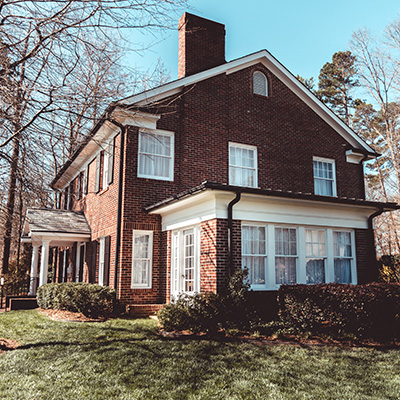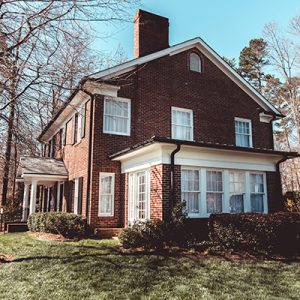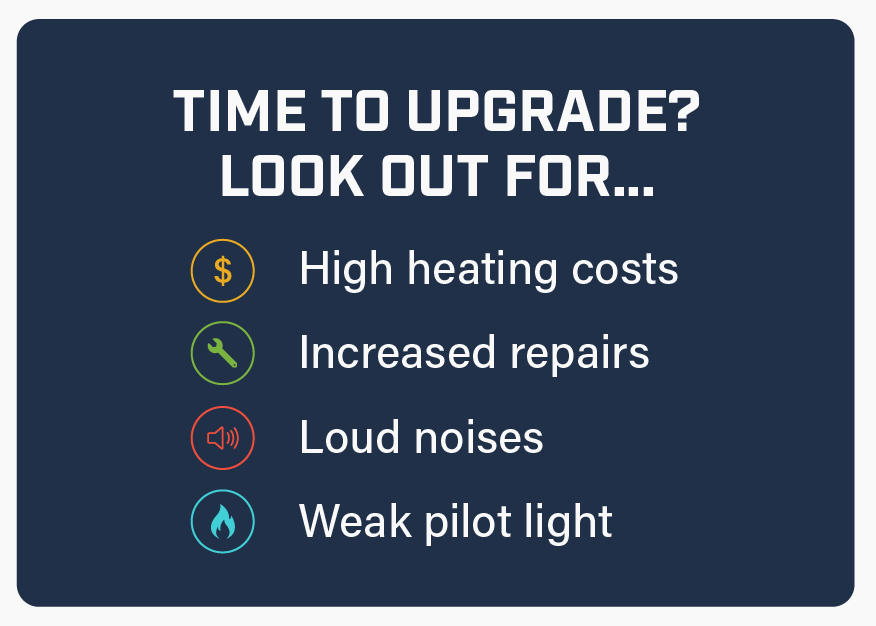
 As much as homeowners would like to hear their residential gas furnaces will last a lifetime, heating equipment does degrade over time. Luckily, the average lifespan of most furnaces is 15-20 years. Some models can even last up to 30 years with routine, professional maintenance. That means you can get decades of comfort before you have to consider a furnace replacement. When do you need to think about a residential HVAC system upgrade? What are signs your gas furnace might be on its way out? Our HVAC contractors in Beaverton share all the details you need to know.
As much as homeowners would like to hear their residential gas furnaces will last a lifetime, heating equipment does degrade over time. Luckily, the average lifespan of most furnaces is 15-20 years. Some models can even last up to 30 years with routine, professional maintenance. That means you can get decades of comfort before you have to consider a furnace replacement. When do you need to think about a residential HVAC system upgrade? What are signs your gas furnace might be on its way out? Our HVAC contractors in Beaverton share all the details you need to know.
Is it Time to Upgrade Your Residential Gas Furnace?
Most homes in Beaverton were built between 1970 and 1999. As heating systems in older homes age, their performance begins to decline. So, the first step to determining if you need to upgrade your HVAC system is to assess your home’s age. If your residence was built before 2000 and is still relying on the original heating unit, it might be time to think about installing a new gas furnace. How can you tell if your gas furnace is nearing the end? Here are some warning signs we recommend looking out for:
- High heating costs: Older furnaces lose efficiency, causing them to run more frequently or short-cycle. If you notice your HVAC system kicking on more often without adequately heating your home, it could be time to replace your system.
- Increased repairs: Do you find yourself seeking residential HVAC services for your home heating unit? Repeated repairs often indicate a larger problem, like a gas furnace reaching the end of its cycle.
- Loud noises: Rattling, squealing, and banging sounds coming from your gas furnace are not typical. If you hear strange or loud noises, this could be a serious sign of impending furnace failure.
- Weak pilot light: A healthy gas furnace produces a bright blue flame. If you observe a weak or yellow flame, this signals gas is not burning correctly. In this instance, it’s crucial to contact our HVAC service and repair specialists. Pilot light problems could become dangerous.
What’s the Best Type of Furnace for an Older Home?
Any of the above signs could mean it’s time to replace your gas furnace. While the upfront costs of replacement might be daunting, the long-term benefits of a modern HVAC system upgrade are worth it. In fact, even if your furnace appears to be functioning correctly, newer models could still save you money in the long run. It’s always best to consult with your heating and cooling specialists about what gas furnace solution is right for you. Here are just a few rewards you’ll see with a new gas furnace replacement:

- Improved efficiency: Modern furnaces are more energy-efficient than their predecessors. High-efficiency options are readily available and help reduce energy costs while keeping your home climate comfortable. The more efficient your model, the more savings you will see on your utility bills monthly.
- Better heating control: Newer HVAC technologies, like zoning systems and variable speed options, offer homeowners more control over their heating comfort. They can also help alleviate uneven heating.
Choosing the ideal gas furnace for your Beaverton home is no small feat. Each home’s heating need is unique, which is why working with our professional HVAC contractors is crucial.
Our NATE-Certified technicians can recommend the best upgrade option for your needs and set-up routine maintenance to keep your HVAC system in top shape. Not sure if your residential heating unit is ready for a replacement? Are you experiencing troubling signs, but your furnace is still under 15 years old? Problems can still creep up in a young furnace, so it’s essential to have a trained professional evaluate the situation.
Residential HVAC Services, Repair & Replacement in Beaverton
Beaverton’s most trusted HVAC company, AAA Heating and Cooling, offers over 50 years of unparalleled service. To assess your gas furnace health, and recommend replacement options, contact our skilled Beaverton sales and service team today.